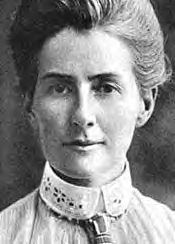
Edith Cavell is not a household name, and except for one single event, she may have lived and died with very few people knowing anything about her.
Edith Cavell was a nurse. Born in England and raised by strict Episcopal parents who wanted their daughter to be the best person she could be and to honor God and King. Edith did so by becoming a matron at the Berkendæl Medical Institute in Brussels, Belgium, in 1907.
To appreciate this story, you need to know that at the turn of the 20th century, most all hospitals were more places of death than places of healing, and in Europe this was true most everywhere outside the United Kingdom. There was one exception among the awful – Berkendæl was the finest hospital on the Continent. Not because the Belgians had a corner on health care knowledge but because of Edith Cavell.
When Cavell arrived in Brussels she alone was responsible for the innovations in nursing care that saved thousands of lives, and during World War I, among them, French, British, Belgian, and even German soldiers who were wounded in battle.
Cavell was basically instrumental in their care and healing, but it was from Berkendæl that wounded soldiers were assisted in their escape from occupied Belgium into neutral Holland.
As we say today, a person-of-interest in the prisoner’s escape organization, was one Philippe Baucq. (Pronounced BALLK.) In August 1915, the Germans raided Baucq’s home, and because he had not destroyed dozens of incriminating letters, he was arrested. Some of those letters contained Edith Cavell’s name.
The next day, Otto Mayer of the German Secret Police arrived at the hospital in Brussels. Cavell’s office was searched but nothing was found, except a tattered postcard sent by an English soldier thanking her for helping him escape from Belgian and to arrive safely at his home. Immediately, Cavell was arrested, driven to police headquarters and questioned. Cavell had, in fact, sewn her diary inside a cushion and although more than 200 wounded prisoners had passed through Berkendæl, the only document incriminating the nurse was the postcard.
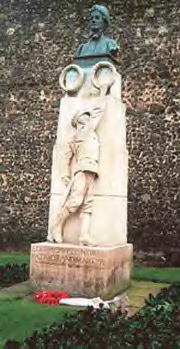
At a trial that is best described as a farce, Cavell was sentenced to death, along with four other Belgians. At dawn on October 12, 1915, two firing squads, each of eight men, carried out the executions at the national rifle range in Brussels. Cavell was still wearing the nurse’s uniform she was wearing when arrested 68 days earlier.
Cavell was buried immediately on the grounds of the rifle range, but after the war her remains were repatriated to England. She now rests in sacred ground at Norwich Cathedral and memorials to her abound: in the UK memorial postage stamps have been issued and there is a statue in Trafalgar Square that has inscribed the last words spoken before her death, “Patriotism is not enough. I must have no hatred or bitterness for anyone.” In Brussels, the nursing school she founded has her name, and since 1931 in Alberta, Canada, Mt. Edith Cavell rises over 11,000 feet above sea level.
Postcards also memorialize Edith Cavell. There is a six card set that is particularly interesting and there are dozens of others including some very good real-photos.
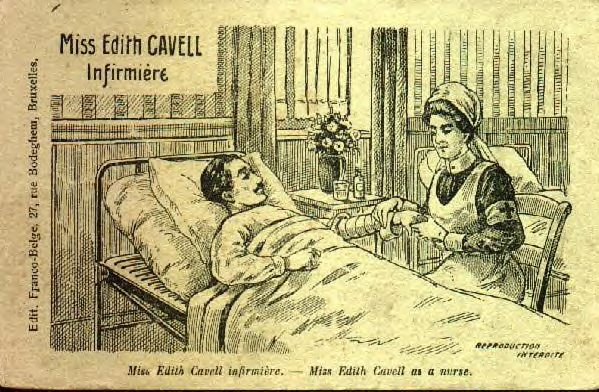
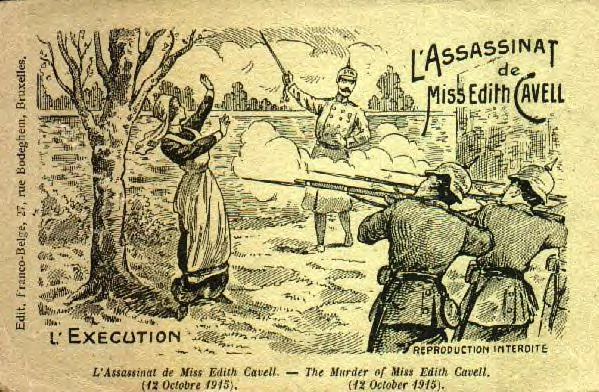
Two examples from the six card set are; left, Cavell as a nurse, and right, her execution by a German firing squad on October 12, 1915.
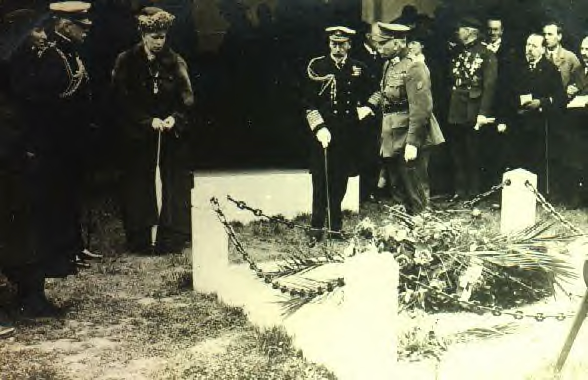

How tragically ironic that a note expressing gratitude to Edith sealed her doom. Also, I noticed the cards in French referred to her as “MIss Edith Cavell” instead of translating the honorific to “Mademoiselle”.
The name of Edith Cavell is a household name in Britain. There cannot be many who have not heard of her. However this is the first time I have learnt that it was a postcard which gave her away. Many girls were named Edith after her death – including my own mother.